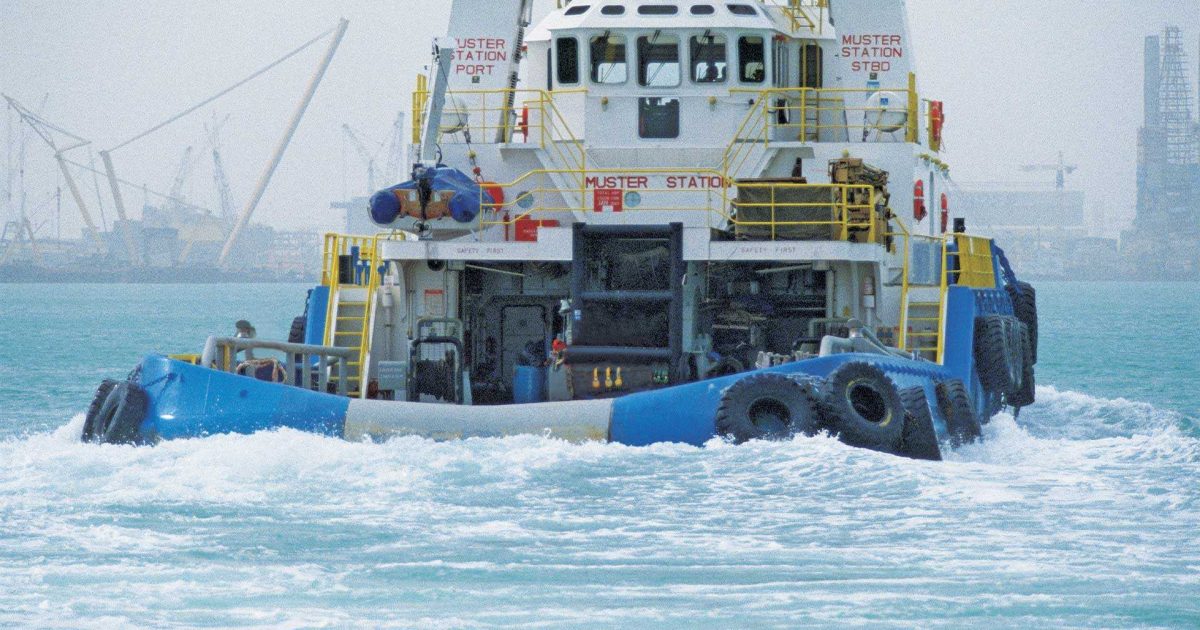

Organizational Impact
Organizations dealing with the tugs benefit tremendously when their leaders possess a high degree of the inner competencies gained in this seminar. They will be better able to understand the various tug types, assisting methods and certificates required by the tugs. They will access in-depth thinking potential to make decisions and solve problems more effectively.
- Understanding of the use of tugs, assisting methods and tug designs
- Improving interface management between departments dealing with the tug operations
- Minimizing number of mistakes when working with various tug types
- Speeding up operations
- Serving clients more efficiently
- Enhancing human relations within the organization
- Improving vision of future opportunities for development
- Developing necessary employee’s skills
- Saving costs
- Tug designs and assisting methods.
- Factors influencing tug type & design.
-Types of tug-tug performance and safety.
-Tug superstructure and underwater design.
-Assisting methods relationship between type of tug and assisting method\tug capabilities and limitations-pivot
point-towing point, pushing point and lateral center of pressure-direct and indirect towing methods- reducing the
transverse resistance of the hull - reducing the height of the towing point-a towline with good shock absorption
characteristics-reducing the height of the pushing point.
- Bollard pull requirements-factors influencing bollard pull requirements\tug wash effects-environmental conditions and
Displacement
- Interaction effects influencing tug performance - tug safety coming alongside and departing from a ship’s
side - passing a towline near the bow-passing a towline at the stern-forward & stern tug steering broadside.
- Escort towing operational practice-braking & steering forces-side & rudder tugs-stability.
This training seminar will greatly benefit all individuals who wish to improve their leadership skills and develop their personal power and effectiveness:
• Managers
• Team Leaders
• Supervisors
• Professionals
• Technical Staff
• Superintendents
• Operators
• Officers
• Procurement professionals
• Suppliers
• Planners
• Inventory professionals
DAY 1: Tug designs and types of harbour tugs
• Differences in tug design factors and assisting methods
• Factors influencing tug type and tug assistance
• Types of tugs
• Classification of tugs and operational design aspects
• Basic and related tug types
• FAST tug types, specific tug types, research, performance
DAY 2: Assisting methods, tug capabilities and limitation
• Assisting methods
• Basic principles and definitions
• Capabilities and limitations
• Design consequences
• Environment limits for tug operations
• Some other practical aspects
DAY 3: Bollard pull required, interaction and tug safety
• Introduction
• Factors influencing bollard pull required
• Bollard pull required
• Interaction and shallow water effects
• Tug safety
• Summary and conclusions
DAY 4: Towing Equipment
• Additional towing points and gob ropes
• Towing bitts, hooks and winches
• Towline Safety Systems
• Sale and Purchase
• Towlines and its handling
• SWL, towing equipment, emergency towing equipment
DAY 5: Escort tugs, tugs development, safety
• Escorting objective and tug placement
• Special developments in the design of tugs
• Autonomous tugs
• Safety
• Risks
• Safety Management Systems
CDGA attendance certificate will be issued to all attendees completing minimum of 80% of the total course duration.
| Code | Date | Venue | Fees | Register |
|---|---|---|---|---|
| MAR111-02 | 15-06-2026 | Istanbul | USD 5950 | |
| MAR111-03 | 31-08-2026 | Kuala-Lumpur | USD 5950 | |
| MAR111-04 | 20-12-2026 | Jeddah | USD 5450 |
Providing services with a high quality that are satisfying the requirements
Appling the specifications and legalizations to ensure the quality of service.
Best utilization of resources for continually improving the business activities.
CDGA keen to selects highly technical instructors based on professional field experience
Since CDGA was established, it considered a training partner for world class oil & gas institution
3012, Block 3, 30 Euro Business Park, Little Island, Co. Cork, T45 V220, Ireland
Mon to Fri 09:00 AM to 06:00 PM
Contact Us anytime!
Request Info